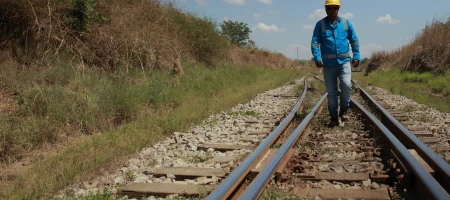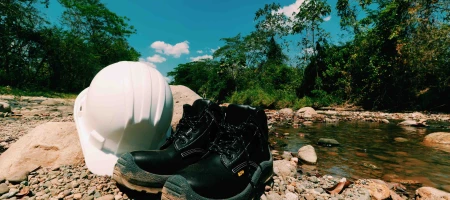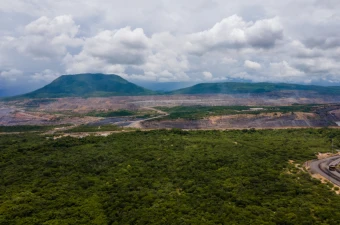
In Cesar, Colombia, the abrupt closure of the La Francia mine by the Colombian natural Resources (CNR) has not only left a void in the land, but also in the lives of hundreds of workers. The story is told by Robinson Báez, president of Sintracarbón/Seccional Ciénega and a member of the Colectivo de Trabajadores por la Transición Justa. He uncovers the complex reality of the process towards a just and sustainable energy transition, which is burdened with challenges and union struggles that demand justice for the workers.
The case of CNR and the abrupt closure of the mine in Cesar
The history of the La Francia mine is full of transformations and transfers, from management by the Brazilian multinational Vale do Rio Doce marked by labour tragedies, to its acquisition to Muray Energy, and finally its transfer to CNR. The latter has decided to close the mine, which they justified by saying that the coal resources of the mine were exhausted. The closure process has been sudden, and has left the workers in uncertainty, without a clear plan for transition of relocation.
CNR has a complex and fragmented structure, which further aggravates the situation. The company is divided in multiple legal entities, and as a result, the workers are dispersed in a way that makes union formation difficult. This is clearly anti-union practice. Despite efforts to organize workers, union initiatives have failed and were undermined by selective wage increases and deterrence of labour activism. In Robinson’s words:
"As a company, CNR has a very complex structure, which makes unionization very hard. Within CNR, there are four companies: CNR 1, CNR 2, CNR Transport, and Sociedad Río Córdoba. The different corporations have different representataives, and the workers are divided in such a way that it is barely possible to form a union. This structure is deliberately is anti-union. CNR has never had unions; once we tried to enter the company as a union to expand our network of affiliates, but it was impossible. The company raised thier salaries so that they would not unionize, the rumor spread, and so the workers desisted from forming a union.
The impact of the transition
Beyond the numbers and corporate strategies, the closure of the La Francia mine is filled with uncertainty, fear and struggle. As Ramón Flores, mine worker, points out, many of the workers were hired indirectly, and their dismissal represents a labour massacre. This situation is part of a broader pattern of layoffs without adequate labour guarantees that were replicated in other companies in the sector, such as Prodeco and possibly in the future of Cerrejón.
The main concerns for union workers is a replication of the mass layoffs and a decrease of labour conditions in the context of the energy transition. The lack of unionized workers and long-term contracts further complicate the negotiation of fair labour conditions and leave the workers in a vulnerable position.

The importance of unionization and collective bargaining
The case of CNR, and many other companies, demonstrate the critical need to strengthen unionization and Collective Bargaining Agreements as tools to protect workers’ rights in the context of the energy transition. Unionization provides a platform for workers so they will be able to bargain collectively against company closures and labour transitions.
Collective negotiations allow minimum standards to be established for all the workers in a sector, while leveling the playing field and reducing unfair competition between companies based on labour cost reductions. This approach is especially relevant in sector that are susceptible to technological and economic transformations, such as the energy and mining sectors, where workers cannot be certain about their future employment.
Labour justice at the heart of the transition
This situation around CNR particularly underscores the importance of integrating labour justice at the center of the energy transition. This involves not only closing minds and reducing the dependence on fossil fuels, but it should also ensure that the affected workers have access to new employment, training and retraining opportunities.
The closure of the La Francia mine is an important reminder that the energy transition is not only a technical and environmental challenge, but also a profoundly human one. It requires a comprehensive approach that considers social and labour justice as inseparable components of the path towards a sustainable future. The CNR story is a call to action for all the actors that are involved in this global process.
Publication date 31 03 2024



